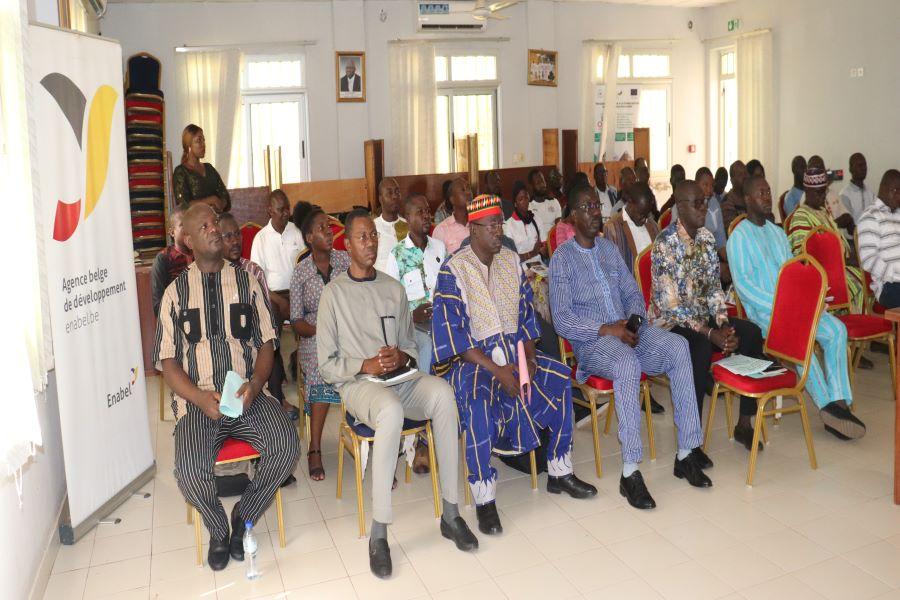Search
Viewing 195 to 210 of 2520 news
-
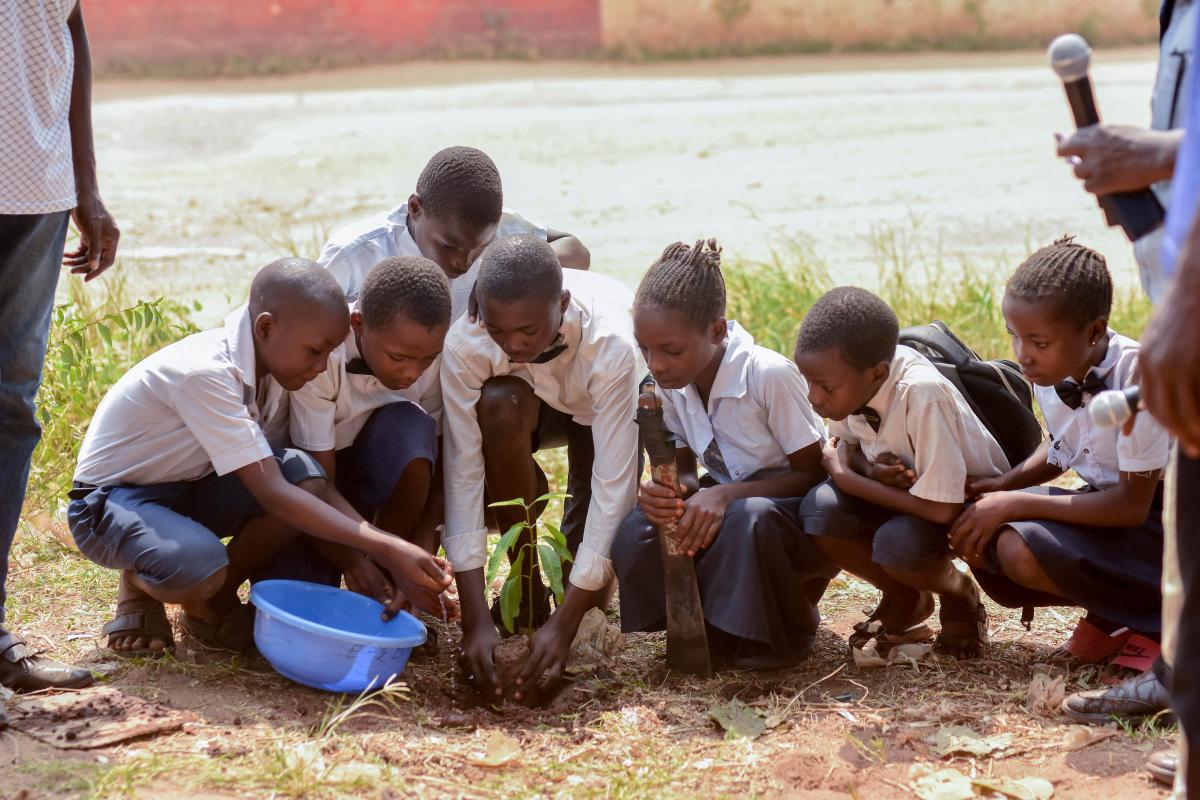
Commémoration de la journée mondiale de l’environnement dans la Province du Kasaï Oriental
Paola VANGU TSAKALA | 26/06/2024
Le 5 juin Appuyées par l’intervention Edubase en synergie avec l’intervention agriculture, 5781 élèves des écoles primaires et secondaires ainsi que des apprenants des centres de rattrapages scolaires des sous divisions de Mbuji Mayi 2 et Katanda 2, ont été sensibilisés sur le rôle et l’importance de l’arbre en milieu scolaire. Ces séances de sensibilisations ont été animées avec la collaboration des inspecteurs de l’EPST KOR 1, des inspecteurs terrain de l’environnement, des agents terrain de la DIVAS ainsi que des inspecteurs provinciaux de l’agriculture du Kasaï Oriental. S’en suivra le 05 juin d’une conférence débat des opérateurs Pédagogiques sur la Gestion Durable de l'Environnement en Milieu Scolaire.
-
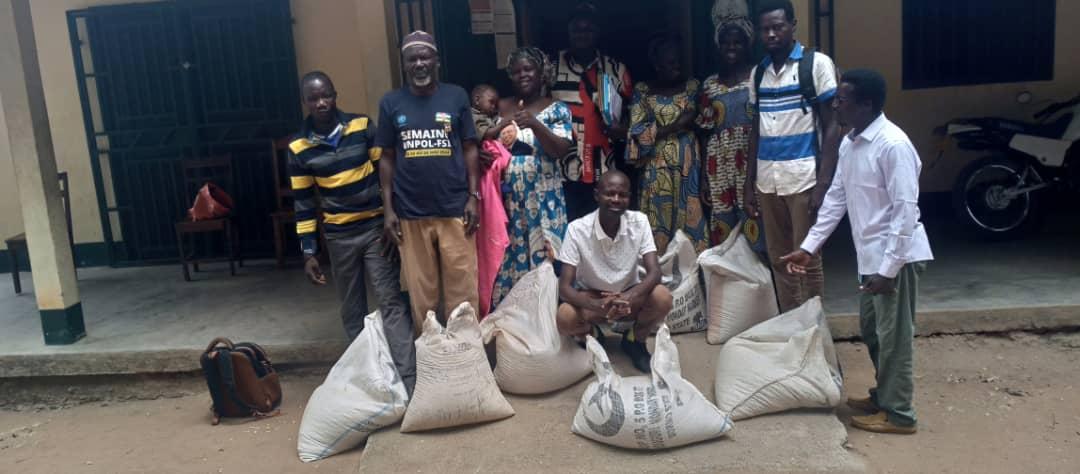
Remise de semenceaux et de matériel agricole aux bénéficiaires de l’agropole de Bouar
Paola VANGU TSAKALA | 26/06/2024
Dans le cadre de la campagne agricole 2024, le programme DEVRUR II a distribué des semenceaux (tubercules destinés à l'ensemencement) d'igname (plante vivrière des régions tropicales, à rhizomes tubérisés qui constituent une importante fraction de l'alimentation des populations rurales tropicales) à une dizaine de bénéficiaires les 21, 22 et 28 mai 2024. De plus, vingt-cinq (25) apiculteurs ont reçu 125 ruches et 200 tôles. Quinze (15) autres bénéficiaires ont également reçu des semences de maïs. Par ailleurs, six (6) sites maraîchers ont reçu du matériel agricole dont des brouettes, des pousse-pousse et des pulvérisateurs. Cette campagne vise à renforcer les capacités et améliorer les moyens de production agricole en République Centrafricaine. Le 30 mai 2024, au bureau de la Division Provinciale de la Santé de Kinshasa, afin de garantir un encadrement de proximité des aires de santé et des établissements de soins par l’équipe cadre de la zone de santé de Limete, le programme santé et protection sociale à Kinshasa a remis un véhicule et deux motos au ministère de la Santé Publique, Hygiène et Prévention. Ce matériel vise à renforcer la présence de l’équipe cadre dans les aires de santé, assurant un coaching rapproché et la disponibilité des intrants nécessaires pour offrir des soins de santé adéquats dans le cadre de la couverture santé universelle.
-
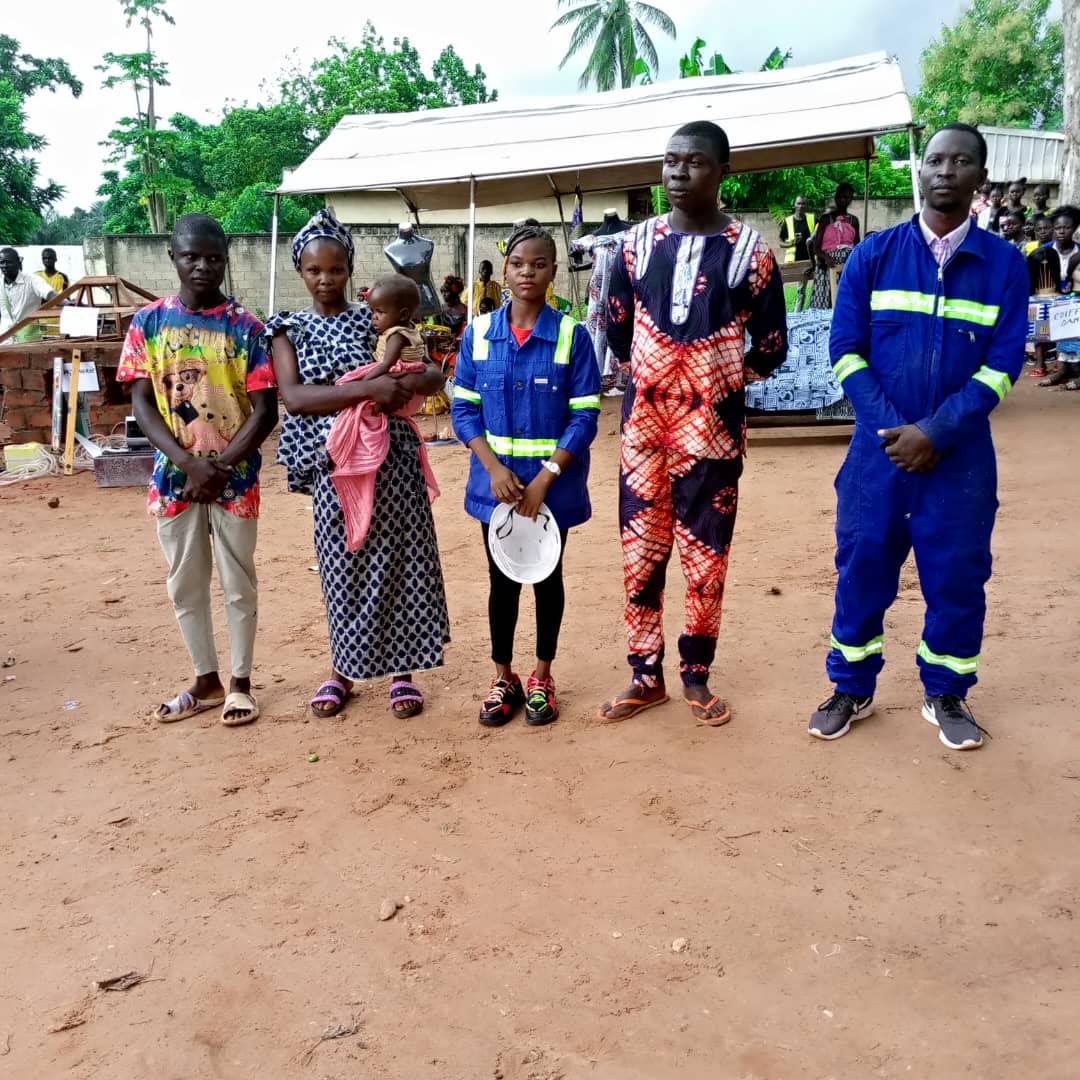
Journée portes ouvertes aux CFPPA de Bossangoa et Berberati
Paola VANGU TSAKALA | 26/06/2024
Les Centres de Formation Professionnelle Pratique et d’Alphabétisation (CFPPA) de Bossangoa et Berberati, ont tenu leurs journées portes ouvertes les 17 et 23 mai 2024. Les 5 meilleurs apprenant.es des filières Électricité, Maçonnerie, Mécanique, Soudure et Menuiserie ont été récompensés. Organisées en partenariat avec la Direction Générale de l’Enseignement Technique et de la Formation professionnelle (DG-ETFPP), les journées portes ouvertes avaient pour thème « Pratique et maîtrise des métiers techniques, un canal vers l’entrepreneuriat ». Les activités incluaient des stands par filière, des présentations, démonstrations de savoir-faire, des visites guidées, des jeux-concours, et des sketchs, offrant ainsi une immersion complète dans l’univers des CFPPA.
-
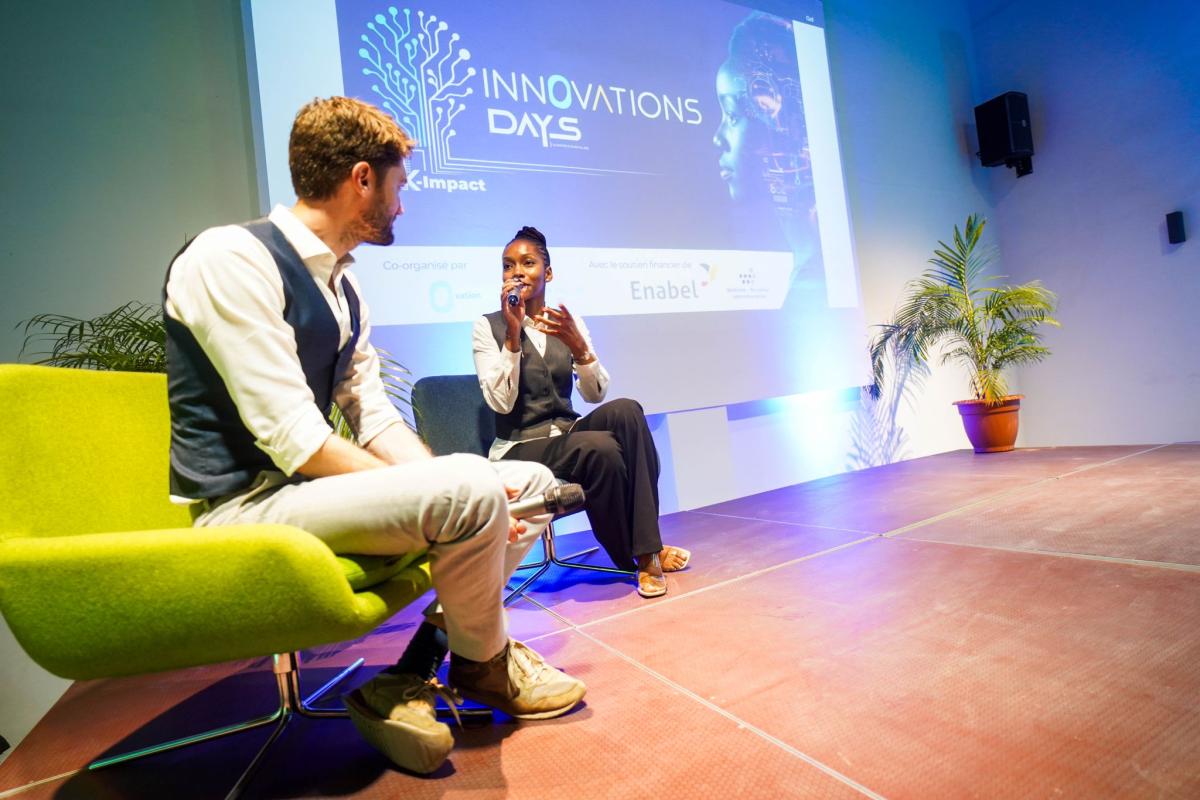
Innovations Days : Kinshasa révèle ses talents et ses technologies de Demain
Paola VANGU TSAKALA | 26/06/2024
Du 31 mai au 1er juin, nous avons participé aux Innovations Days pour découvrir les projets des jeunes entrepreneurs de Kinshasa. Organisées par la communauté K-impact en partenariat avec Ovation et notre projet KinEmploi, ces journées comprenaient des discussions sur le leadership féminin, l'intelligence artificielle en milieu professionnel, des présentations de jeunes talents et des démonstrations de technologies de pointe comme les imprimantes 3D et les drones.Le programme K-Impact, développé par Ovation et Silikin Village en partenariat avec KinEmploi, vise à améliorer les conditions de travail et générer des emplois décents en RDC.
-
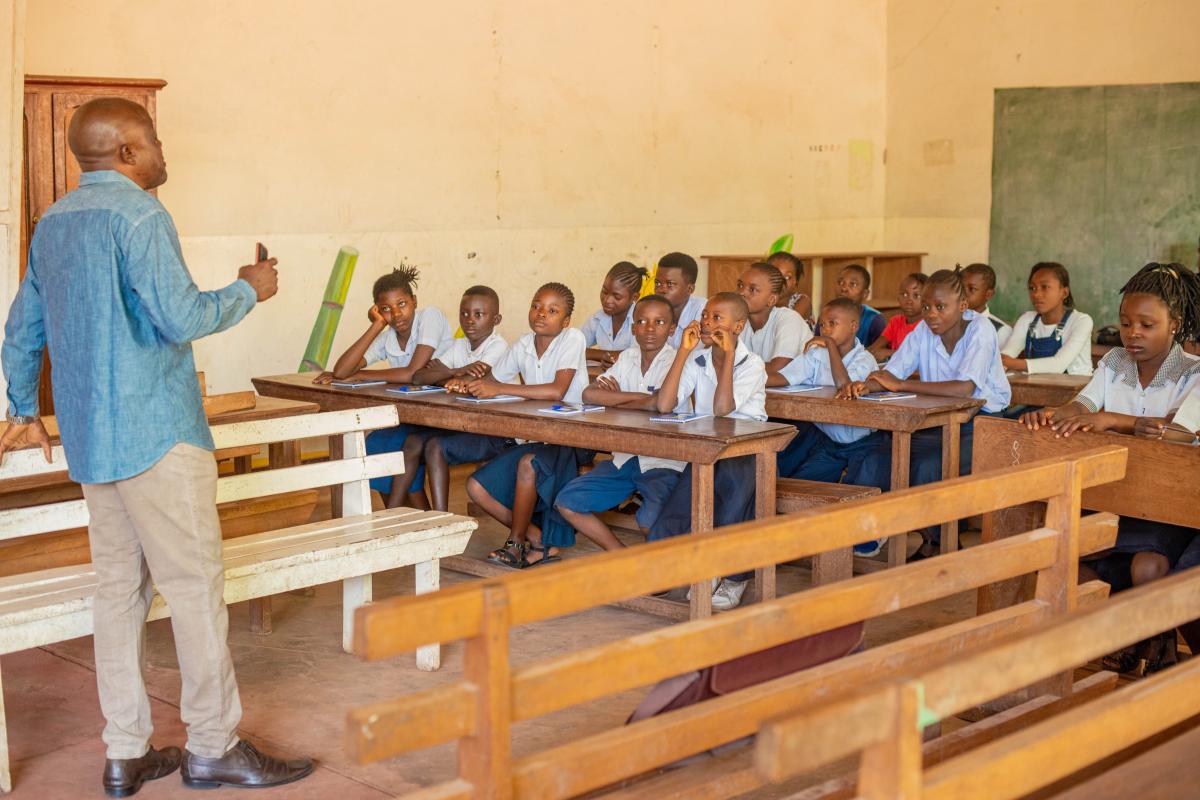
Préparer les leaders de demain pour une meilleure participation à la gouvernance scolaire
Paola VANGU TSAKALA | 26/06/2024
Près de 345 élèves, dont 172 filles, ont été formés sur leurs rôles dans la gestion scolaire afin de renforcer les capacités des comités d’élèves des écoles primaires, secondaires et des centres de rattrapage scolaire.Ces séances, avec la participation des chefs d’établissement, des enseignants et des présidents de comités de parents, visaient à renforcer les capacités des comités d’élèves, des enseignants et des présidents de comités de parents de Mbuji Mayi 2, Katanda avec l’accompagnement de notre programme Edubase dans cette province.
-
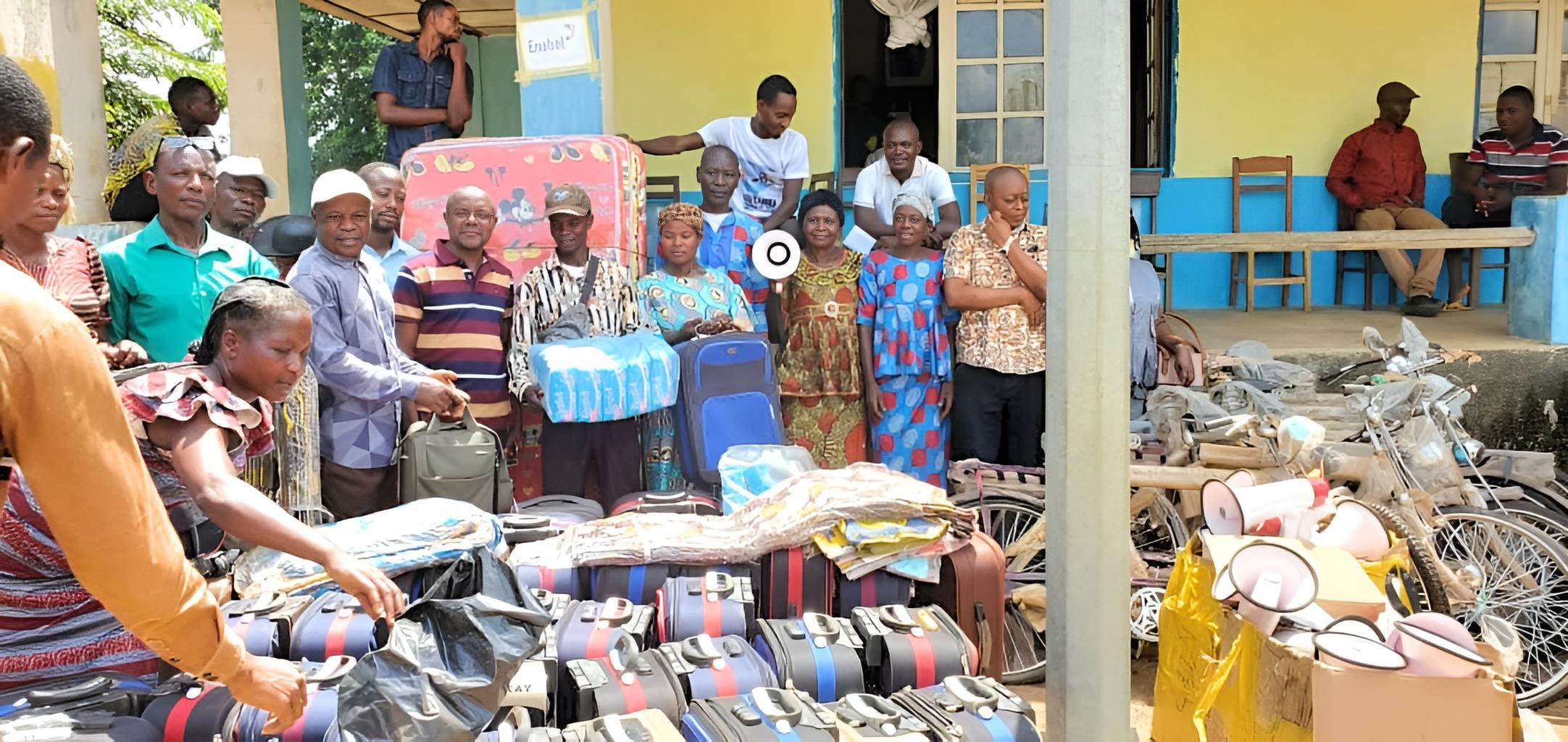
Programme de Lutte contre les Violences Sexuelles (PLVS) dans le Sud Ubangi/Gemema et Budjala
Paola VANGU TSAKALA | 26/06/2024
Un véritable arsenal de matériels destiné à combattre les violences et soutenir les victimes a été distribué le 02 mai aux structures étatiques de Gemena et Budjala, pour renforcer le programme de réduction des violences sexuelles et leurs conséquences dans la région du Sud-Ubangi. Ce matériel comprenait des équipements informatiques, des moyens de transport (motos et vélos) et des kits solaires à destination de la Cour d’Appel du Sud Ubangi, du Tribunal de Grande Instance de Gemena, du tribunal pour enfants de Gemena, de la coordination provinciale du Genre, les familles d’accueil transitoire et l’Hôpital Général de Référence de Budjala.
-
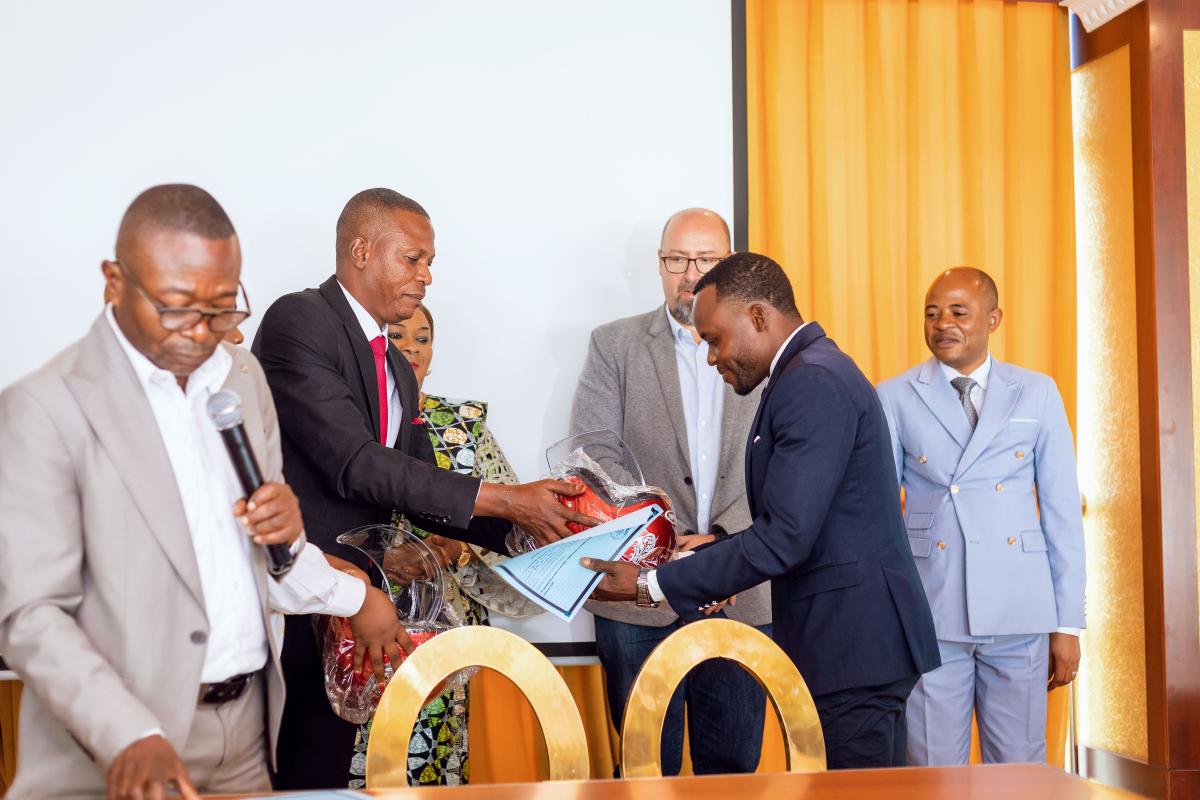
A Lubumbashi, 80 mototaxistes sensibilisés au Code de la route
Paola VANGU TSAKALA | 26/06/2024
La Division provinciale de la Prévoyance sociale du Haut Katanga, en partenariat avec l’Institut National de Préparation Professionnelle (INPP) et la Police Nationale de Circulation Routière (PNCR), a organisé des ateliers de recyclage pour les conducteurs de mototaxi de Lubumbashi du 20 au 28 mai 2024.Ces ateliers, soutenus par le programme Protection sociale et Travail décent d'Enabel en RDC, ont sensibilisé 80 conducteurs sur le Code de la route et la bonne conduite. Les 50 meilleurs ont reçu des équipements de protection individuelle au cours d’une journée finale de sensibilisation de masse.
-
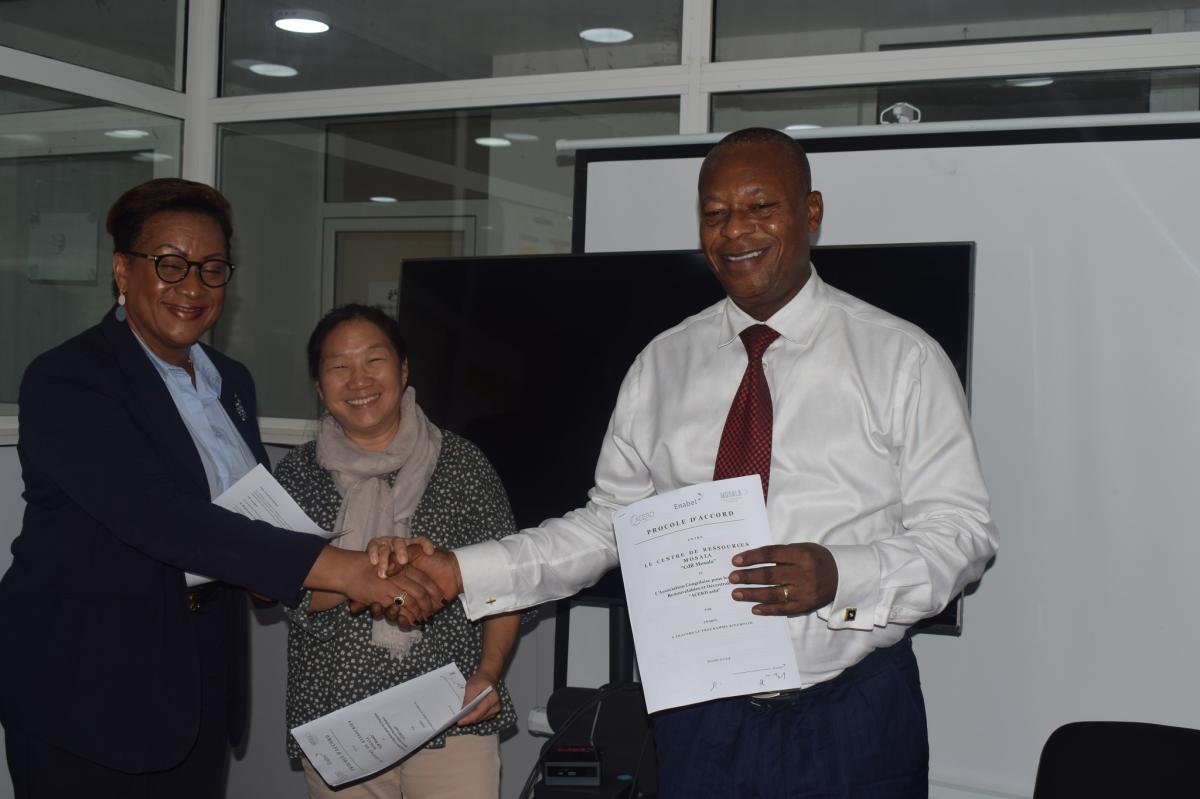
En RDC, partenariat gagnant pour l'emploi des jeunes : le cas de KinEmploi
Paola VANGU TSAKALA | 26/06/2024
Le programme KinEmploi a joué un rôle clé dans l'établissement d'accords de collaboration entre le Centre de Ressources (CdR) MOSALA et ses partenaires dans les domaines de la formation, de l'emploi et de l'entrepreneuriat. Ces accords signés le 9 mai marquent le coup d'envoi d’une coopération renforcée et dynamique avec notamment Louvain Coopération, CLEJUPS, CARS, ACERD asbl et KADEA Fondation. Ces nouvelles collaborations visent à orienter les jeunes vers des emplois stables et de qualité. En plus de développer les compétences des jeunes, cette initiative encouragera l'entrepreneuriat et favorisera un environnement propice à l'innovation et à la croissance économique. Le CdR pourra en outre offrir des programmes de mentorat, des ateliers de développement de compétences et des opportunités de réseautage, ouvrant ainsi de nouvelles perspectives pour l'épanouissement professionnel et personnel des jeunes.
-
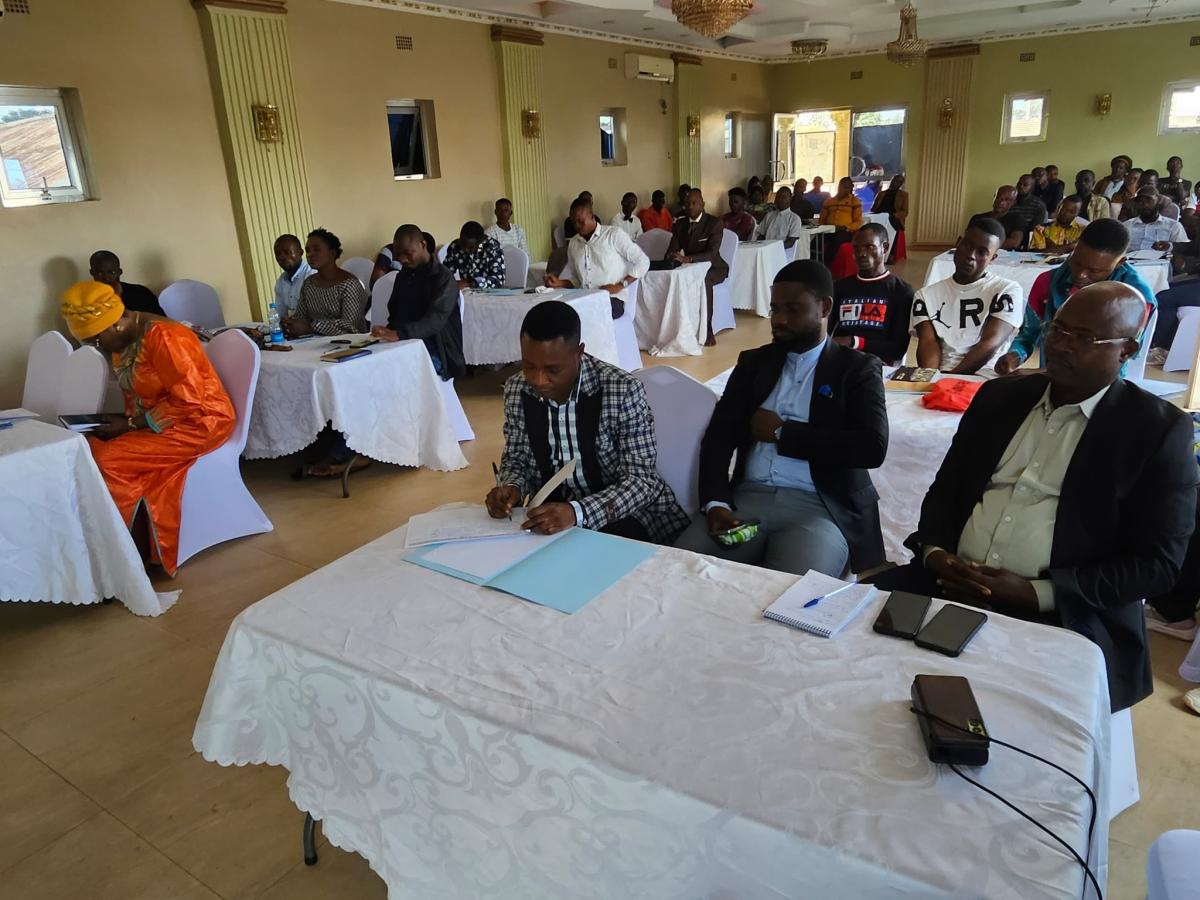
RDC: Des formations sanitaires pour améliorer les conditions de travail des mineurs artisanaux
Paola VANGU TSAKALA | 26/06/2024
L'Alternative pour la Transformation de l'Artisanat Minier (ATRAM) a organisé avec le soutien de notre programme de Protection Sociale et Travail Décent, des formations à Kolwezi pour les exploitants miniers artisanaux du 7 au 22 mai 2024.Cette initiative s'inscrit dans le cadre de la Journée mondiale de la santé et de la sécurité au travail, célébrée le 28 avril dernier. Afin de garantir un travail plus sûr, ces sessions ont couverts le Code minier, les droits au travail et l'importance des mutuelles de santé. Des creuseurs artisanaux, des laveuses de minerais, des manutentionnaires et des responsables de coopératives, ont appris les bonnes pratiques environnementales et de sécurité. Les formations se sont soldées par la distribution des équipements de protection individuelle (EPI) à 100 exploitants. Les coopératives minières ont également été dotées de matériel de sensibilisation pour renforcer leurs actions.
-
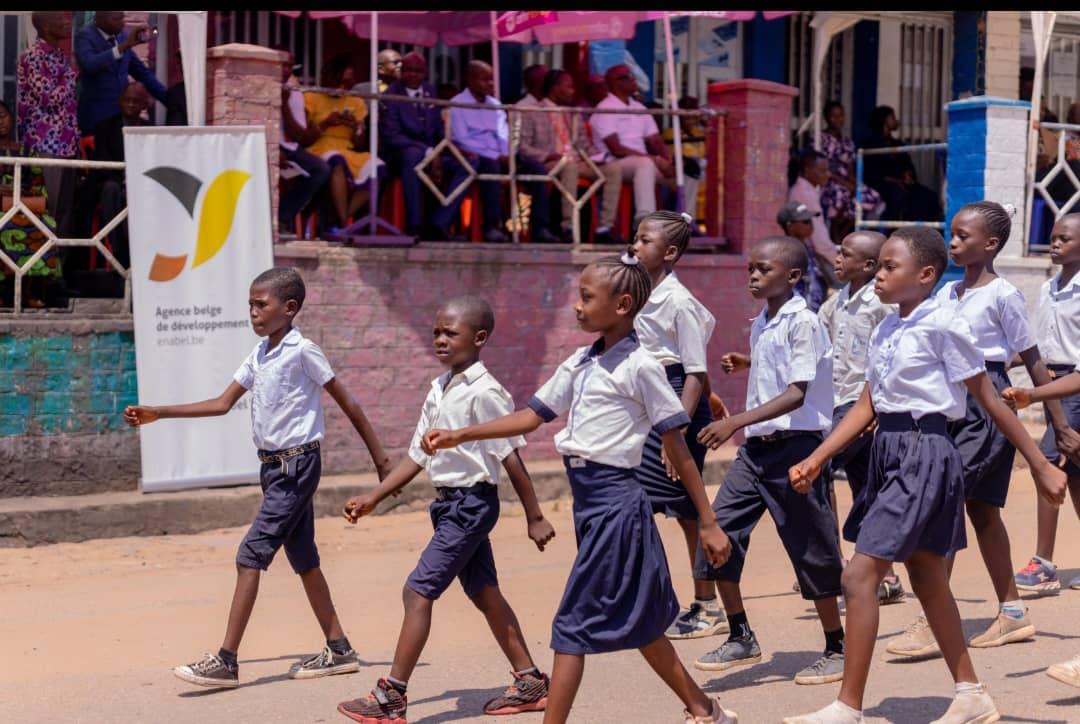
La journée nationale de l‘enseignement à Mbuji-Mayi : honorer le pilier de l'éducation en RDC
Paola VANGU TSAKALA | 25/06/2024
Le métier d'enseignant est le garant d'une éducation de qualité en République Démocratique du Congo. Le 29 avril 2024, cinquante agents de la Division Provinciale de l’Enseignement Primaire, Secondaire et Technique de Kasaï Oriental 1 à Mbuji-Mayi ont participé à une conférence débat organisée pour la journée nationale de l’enseignement.L'objectif ? Mettre en lumière cette noble profession, véritable pilier de l'éducation en RDC. Le lendemain, un grand défilé a animé le Boulevard Laurent Désiré Kabila, dirigé par le Gouverneur par intérim et le ministre provincial de l'éducation. Des dizaines d'établissements scolaires et les bureaux gestionnaires de l'EPST Kasaï Oriental ont rejoint la fête. Une célébration digne d’un véritable festival éducatif !
-
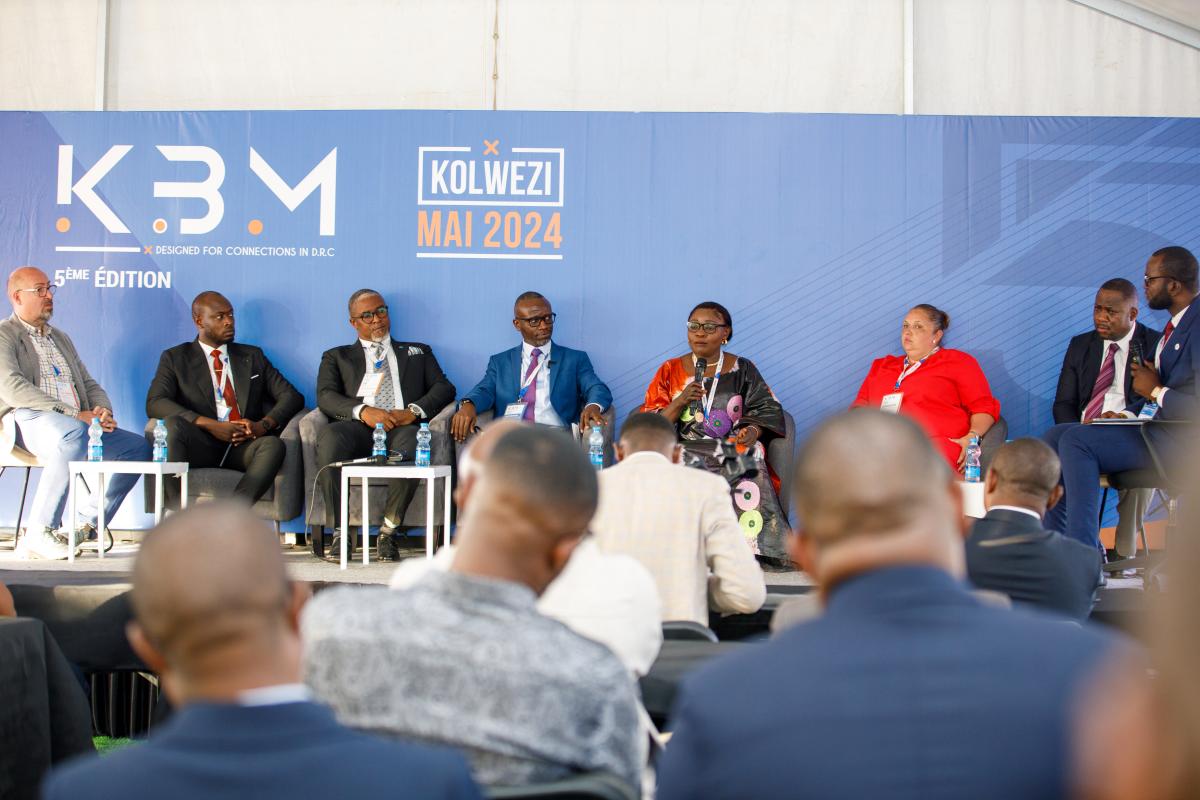
Katanga Business Meeting 2024 : booster l'industrie et l'entrepreneuriat en RDC
Paola VANGU TSAKALA | 25/06/2024
La 5ème édition du Katanga Business Meeting (KBM) s'est tenue les 3 et 4 mai 2024 à Kolwezi, sous le thème « Investir dans les pôles industriels pour une nouvelle dynamique de croissance en RDC ». Notre coordination Haut-Katanga & Lualaba y a participé pour mettre en lumière nos projets dans la région et offrir une plateforme aux jeunes entrepreneurs du programme SOPA de présenter leurs produits et services. En parallèle, via le projet VET Toolbox et la CCBCL (Chambre de Commerce Belgo-Congolaise-Luxembourgeoise), nous avons organisé une discussion avec des acteurs clés comme l’UNILU (Université de Lubumbashi), KCC (Kamoto Copper Company S.A.), DGC AFRICA, la FEC (Fédération des Entreprises du Congo), l’ONEM (Office National de l’Emploi) afin de débattre sur la politique de stage professionnel comme levier de développement industriel. Avec plus de 60 participants, cette foire aux idées pour façonner le futur industriel a permis de mettre en évidence les défis des services publics à l'emploi et l'importance stratégique d'une politique de stages professionnesl adaptée aux besoins du secteur minier.
-
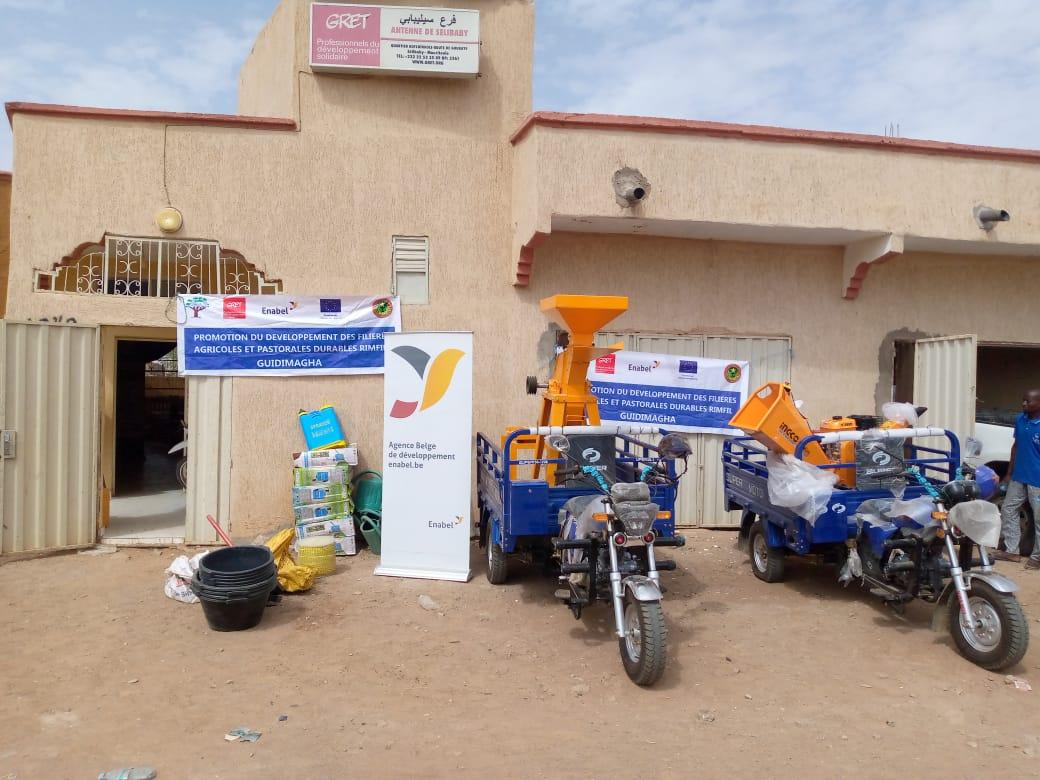
En Mauritanie, dynamisation financière des zones agropastorales grâce au projet RIMFIL
Aminata KANE | 21/06/2024
La mise en œuvre du programme RIMFIL, axé sur le développement des filières agricoles et pastorales et exécuté par Enabel avec le financement de l’Union européenne, a été largement saluée par les milieux agropastoraux pour son engagement à mieux desservir les zones d’intervention.En effet, dans son souci de mieux desservir la zone d’intervention, RIMFIL a contribué, en accompagnant AL-IBDAA Bank et la Coopérative DJIKKE, deux IMF (Institutions de Microfinance) partenaires, à développer de nouveaux produits de crédit pour répondre aux besoins des éleveurs et agriculteurs, à ouvrir 10 nouveaux guichets et agences.Cette proximité de l’accès au financement a permis de cibler 2 377 nouveaux adhérents et d’octroyer 1 877 nouveaux crédits, soit un volume de 20.291 000 MRU (près de 480000 euros). Au total, les nouveaux points de service ont permis de collecter 4 670 783 MRU (plus de 11000 euros) d’épargne.Très édifiant sur le fort potentiel de l’épargne comme source de financement, dans les milieux agropastoraux où l’absence d’un cadre institutionnel de financement bien adapté à leurs besoins créé des obstacles multiples à leur promotion et à leur développement.Toutefois, les interventions du programme RIMFIL à travers les deux IMF précités ont permis à ces dernières de développer plusieurs produits financiers adaptés aux besoins des agriculteurs et des éleveurs.Il y a lieu de rappeler que le déploiement du programme, s’est opéré suivant un processus bien réfléchi qui a commencé dans un premier temps, par la réalisation de diagnostics approfondis aboutissant à la sélection des IMF AL-IBDAA Bank et la Coopérative DJIKKE et d’identifier leurs besoins spécifiques en termes de renforcement de capacités.C’est sur cette base qu’un programme d’accompagnement à long terme a été mis en œuvre au profit de ces deux IMF.Acquis parallèles de RIMFILLe programme a mis également en place un système de subvention adossée à des crédits. Il s'agit d'un mécanisme de cofinancement des projets économiques portés par des promoteurs, grâce à de la subvention, à des crédits et de la contribution personnelle du promoteur.Le recours à cette approche se justifie d’une part, par le fait que les promoteurs opèrent dans des conditions socio-économiques très défavorisées, d’où le recours aux subventions et d’autre part, du fait qu’il favorise l’inclusion financière des promoteurs et la consolidation de la pérennité des services financiers proposés par les IMF.Concrètement, cette démarche consistait à sélectionner des promoteurs en fonction de la pertinence de leurs projets, puis à les appuyer dans l'élaboration de business plan, et enfin à les accompagner dans leur démarche de demande de crédit auprès des IMF et de la mise en œuvre de leurs projets. Ainsi, la mise en œuvre de cette action a permis de financer environ 250 projets. Des résultats concrets et pérennes pour les populations des zones d'intervention du programme.
-
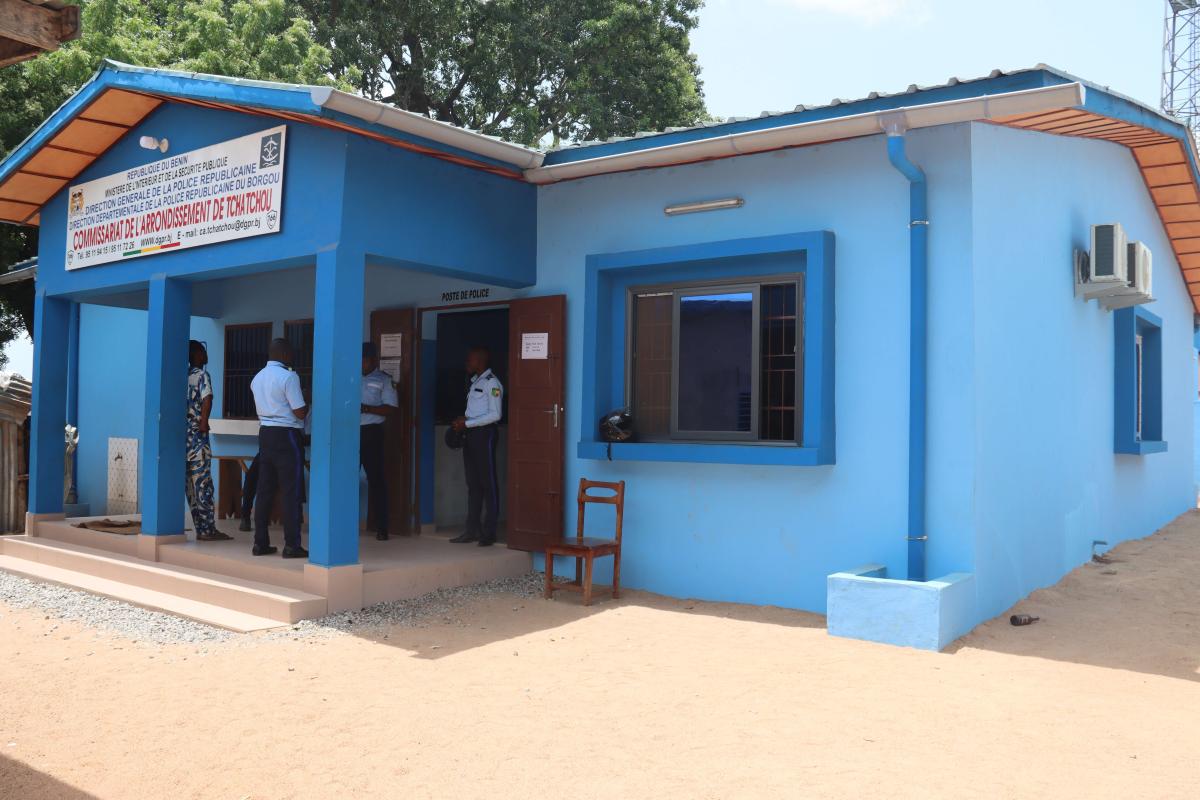
Au Bénin, sept commissariats de police modernisés pour un meilleur service aux citoyens
Osée DOSSOU-HOUEGBE | 21/06/2024
A travers le financement de la Belgique dans le cadre du projet PAOP I, sept commissariats d’arrondissement des communes de Parakou et Tchaourou au Bénin ont été réhabilités et reconstruits.Il s’agit des commissariats de Kika, Bétérou, Tchaourou, Tchatchou, Parakou 1er, 2ème et 3ème arrondissement dans le département du Borgou. Ces nouvelles infrastructures améliorent les conditions de travail des policiers et offrent un accueil plus convivial et accessible aux usagers. En favorisant une meilleure interaction entre la police et la communauté, ces commissariats modernisés contribuent à un service public plus efficace et humain. Les bénéficiaires se sont engagés à en faire bon usage pour un meilleur service aux citoyens. La cérémonie symbolique de remise des infrastructures a eu lieu le jeudi 23 mai 2024, en présence des autorités locales et administratives, et des acteurs de la société civile.
-
Boost des capacités des Micros, Petites et Moyennes Entreprises au Burkina Faso: un nouveau souffle pour les entrepreneurs
Abel YAMEOGO | 21/06/2024
En partenariat avec la Maison de l’Entreprise du Burkina Faso (MEBF), le consortium Enabel et l’Agence de coopération internationale allemande pour le développement (GIZ), chargé de la mise en œuvre du projet de renforcement de la résilience socio-économiques des populations de la Région du Centre-nord (Projet OKD) a officiellement lancé le 13 juin 2024 à Kaya, le Projet d'amélioration de la compétitivité des Micros, Petites et Moyennes Entreprises (PACOM-MPME).Le projet OKD est financé par l’Union européenne et le ministère fédéral allemand de coopération économique et du développement (BMZ).Le lancement s’est effectué au cours d’une cérémonie officielle présidée par le Haut-Commissaire de la province du Sanmatenga M. Idrissa GANSONRE, représentant le gouverneur de la région du Centre-Nord. Il avait à ses côtés l’Intervention manager d’Enabel-OKD, M. Seydou COULIBALY, le Conseiller Technique de la GIZ, M. Idrissa OUEDRAOGO et le Directeur Général de la MEBF, M. Karim OUATTARA.La cérémonie de lancement organisée dans la salle de Conférences de la Délégation Consulaire Régionale du Centre-Nord de la Chambre de Commerce et d'industrie du Burkina Faso (CCI-BF), marque le démarrage officiel des activités du PACOM-MPME qui apportera un soutien à des jeunes entrepreuneurs.res, sélectionnés pour bénéficier sur mesure, de services financiers et non financiers.Une présentation du projet a été faite aux autorités, aux partenaires institutionnels et techniques, ainsi qu‘aux différents acteur·trices qui seront impliqué·es dans la mise en œuvre du projet, en vue d’assurer la bonne appropriation et exécution dudit projet.Implication des parties prenantes dans la conception et la mise en œuvre du projetLe processus de sélection des jeunes porteurs d’idée de projet a été bouclé en mars 2024, suite à une présélection sur dossier suivie d’entretiens oral, avec l’implication des différentes parties prenantes telles que la Direction Régionale de la Jeunesse, la MEBF, les maries, les services techniques partenaires, le Conseil Régional de la Jeunesse, la Coordination Régionale des femmes, l’Agence Nationale pour la Promotion de l’Emploi (ANPE) et l’Agence Nationale de la Formation Professionnelle (ANFP). Quant aux Entreprises déjà actives à renforcé, leur sélection se fera suivant la même démarche les jours à venir.Avant le lancement officiel des activités du PACO-MPME, des réunions d’information et de sensibilisation ont été tenues en avril 2024 dans les communes de Kaya, Boulsa, Korsimoro et Boussouma avec les jeunes porteurs de projets bénéficiaires, en vue de leur expliquer le processus d’accompagnement, recueillir leurs besoins techniques et matériels ainsi que leurs attentes vis-à-vis du projet.Une approche novatrice pour favoriser l’émergence et la compétitivité des entreprisesDans le cadre du PACOME-MPME, la MEBF, en qualité d'agence d'exécution, mettra en œuvre des actions pour promouvoir et développer une approche novatrice, à savoir le « SME Business raining and Coaching Loop (SME Loop) » et le “Startup Business Training and Coaching Loo Start up Loop”, afin de favoriser l'émergence et la compétitivité des MPME, à travers notamment le renforcement de leurs capacité et résilience ainsi que la promotion de l'emploi et l'autonomisation des jeunes dans la région du Centre-Nord.La conception et le lancement du PACOM-MPME découlent du fait que les MPME du Burkina Faso peuvent constituer une source de croissance économique durable et le moteur de création d'emplois.Cependant, selon une analyse faite par le Directeur Général de la MEBF à la cérémonie de lancement du PACOM-MPME, le secteur privé du Burkina Faso est constitué à plus de 80% de MPME ayant des capacités de résilience généralement limitées. Ces MPME connaissent une certaine fragilité financière et restent très vulnérables face à la conjoncture économique nationale et internationale.D’où la nécessité de déployer des actions synergiques pour lever les contraintes qui empêchent son développement notamment l'absence de débouchés commerciaux, la difficulté d'accès au financement, la difficulté de création et de maintien des emplois, les insuffisances de compétence techniques, commerciales et managériales des acteur·trices concerné·es.Le PACOM-MPME, une opportunité pour les acteur·trices des MPME du Centre-NordA travers le PACOM-MPME, il est prévu des actions pour : renforcer les compétences managériales et techniques des porteurs de projets et MPME existants à travers l’implémentation de la démarche Startup Loop et SME Loop ;mettre en place une démarche qualité au profit des MPME pour la labélisation de leurs produits ;assurer une assistance technique pour la facilitation et la création des entreprises.Ce projet constitue, une opportunité pour les acteur·trices des MPME de la région du Centre-Nord, car il leur permettra de mieux appréhender la notion d’entrepreneuriat, d’asseoir de meilleures pratiques de gestion de l’entreprise et surtout d’enrichir leur connaissance et de trouver les voies et moyens de pérenniser des emplois décents.Il s’exécutera sur une période de dix-huit (18) mois et devra permettre à terme d’aboutir aux résultats suivants :à 100 porteurs de projets et 100 MPME de renforcer leurs compétences managériales et techniques, à travers l’implémentation de la démarche Startup Loop et SME Loop ;aux MPME de labelliser 10 produits dans le secteur de l’agroalimentaire à travers l’adoption d’une démarche qualité ;aux porteurs de projet et aux MPME de se conformer à la réglementation et au cadre légal relatif à la création et à la formalisation.Présent à la cérémonie de lancement du PACOM-MPME, le représentant de la coordination régionale des organisations de la société civile a salué cette démarche qu’il a jugée participative et exprimé sa satisfaction et sa pleine adhésion au projet. Il en est de même pour les acteur·trice des collectivités territoriales (mairies) qui se disent satisfait·es et prêt·es à accompagner la mise en œuvre des activités du projet.Par Kimségninga SAVADOGO, Communication Assistant
-
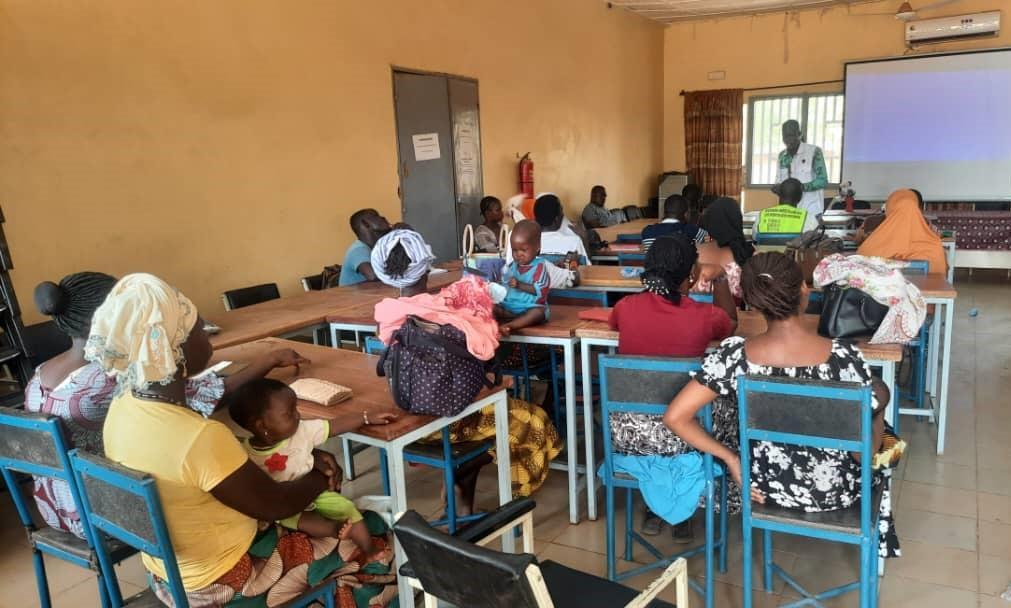
Au Burkina Faso, Enabel dynamise l'entrepreneuriat des jeunes et contribue à la relance économique dans le centre-Nord du pays
Abel YAMEOGO | 19/06/2024
Du 22 au 23 Avril 2024, Enabel au Burkina Faso a organisé des réunions d’information et de sensibilisation dans les communes de Kaya, Boulsa, Korsimoro et Boussouma avec des jeunes porteurs de projets. En effet, dans le cadre de la mise en œuvre du Projet OKD (Axe Ouaga-Kaya-Dori), 120 jeunes porteurs de projets ont été sélectionnés dans ces 4 communes pour bénéficier d'un accompagnement sur mesure de services financiers et non financiers de la part d’Enabel. Au de-là de l’information et de la sensibilisation, l’objectif de ces rencontres était également de mener un plaidoyer auprès des maitres artisans pour les placements et le bon déroulement des stages de perfectionnement au profit des jeunes porteurs de projets sélectionnés Les rencontres dans les différentes communes visaient aussi à expliquer aux jeunes promoteurs de projets le processus d’accompagnement, recueillir leurs besoins techniques et matériels et leurs attentes vis-à-vis du Projet OKD. Le processus de sélection qui a consisté à une présélection sur dossier suivie d’un entretien oral a été bouclé en mars 2024. Ce processus inclusif et participatif a été conduit en collaboration avec les différentes parties prenantes telles que la Direction Régionale en charge de la Jeunesse, la Maison de l’Entreprise du Burkina (MEBF), les mairies, les services techniques partenaires, le Conseil Régional de la Jeunesse, la Coordination Régionale des femmes, Burkina Suudu Baodwè (BSB) qui est un Etablissement Public de l’Etat à caractère Administratif (EPA), et des représentants des bénéficiaires. Quant aux jeunes porteurs de projets, ils ont salué cette démarche qu’ils ont jugée participative et exprimé leur pleine adhésion au projet. Par ailleurs, les points focaux de l’activité au niveau des quatre mairies se disent satisfaits et se disent prêts à accompagner le processus. Ces rencontres contribuent à l’atteinte des résultats 1 et 3 du Projet OKD où il est prévu, entre autres, le renforcement des dispositifs de promotion et d’accompagnement de jeunes promoteurs de projets dans les filières porteuses de l’économie locale pour contribuer à générer des emplois pour les jeunes et les femmes de la Région du centre-Nord. Il va s’agir donc d’accompagner ces 120 jeunes qualifiés à la création de Micro, Petites et Moyennes Entreprises (MPME) et au développement d’activités génératrices de revenus. Le Projet OKD est mis en œuvre par le consortium Enabel-GIZ et financé par l’Union Européenne et le Ministère fédéral allemand de la coopération économique et du développement (BMZ) à hauteur de 10 229 023 euros, soit environ 6,7 milliards de F CFA. Débuté le 1er janvier 2023, la clôture du projet est prévue pour le 31 décembre 2026, soit une durée de 48 mois.
